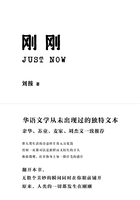"Why, sir, it seems to me that I have got a pretty distinct chain ofevidence, inculpating a gentleman who was walking with Miss Halethat night at the Outwood station, as the man who struck or pushedLeonards off the platform and so caused his death. But the young ladydenies that she was there at the time."
"Miss Hale denies she was there!" repeated Mr. Thornton, in an alteredvoice. "Tell me, what evening was it? What time?"
"About six o"clock, on the evening of Thursday, the twenty-sixth."
They walked on, side by side, in silence for a minute or two. Theinspector was the first to speak.
"You see, sir, there is like to be a coroner"s inquest; and I"ve got a youngman who is pretty positive,--at least he was at first;--since he has heardof the young lady"s denial, he says he should not like to swear; but stillhe"s pretty positive that he saw Miss Hale at the station, walking aboutwith a gentleman, not five minutes before the time, when one of theporters saw a scuffle, which he set down to some of Leonards"
impudence--but which led to the fall which caused his death. Andseeing you come out of the very house, sir, I thought I might make boldto ask if--you see, it"s always awkward having to do with cases ofdisputed identity, and one doesn"t like to doubt the word of arespectable young woman unless one has strong proof to the contrary."
"And she denied having been at the station that evening!" repeated Mr.
Thornton, in a low, brooding tone.
"Yes, sir, twice over, as distinct as could be. I told her I should callagain, but seeing you just as I was on my way back from questioningthe young man who said it was her, I thought I would ask your advice,both as the magistrate who saw Leonards on his death-bed, and as thegentleman who got me my berth in the force."
"You were quite right," said Mr. Thornton. "Don"t take any steps till youhave seen me again."
"The young lady will expect me to call, from what I said."
"I only want to delay you an hour. It"s now three. Come to mywarehouse at four."
"Very well, sir!"
And they parted company. Mr. Thornton hurried to his warehouse, and,sternly forbidding his clerks to allow any one to interrupt him, he wenthis way to his own private room, and locked the door. Then he indulgedhimself in the torture of thinking it all over, and realising every detail.
How could he have lulled himself into the unsuspicious calm in whichher tearful image had mirrored itself not two hours before, till he hadweakly pitied her and yearned towards her, and forgotten the savage,distrustful jealousy with which the sight of her--and that unknown tohim--at such an hour--in such a place--had inspired him! How couldone so pure have stooped from her decorous and noble manner ofbearing! But was it decorous--was it? He hated himself for the idea thatforced itself upon him, just for an instant--no more--and yet, while itwas present, thrilled him with its old potency of attraction towards herimage. And then this falsehood--how terrible must be some dread ofshame to be revealed--for, after all, the provocation given by such aman as Leonards was, when excited by drinking, might, in allprobability, be more than enough to justify any one who came forwardto state the circumstances openly and without reserve! How creepingand deadly that fear which could bow down the truthful Margaret tofalsehood! He could almost pity her. What would be the end of it? Shecould not have considered all she was entering upon; if there was aninquest and the young man came forward. Suddenly he started up.
There should be no inquest. He would save Margaret. He would takethe responsibility of preventing the inquest, the issue of which, from theuncertainty of the medical testimony (which he had vaguely heard thenight before, from the surgeon in attendance), could be but doubtful; thedoctors had discovered an internal disease far advanced, and sure toprove fatal; they had stated that death might have been accelerated bythe fall, or by the subsequent drinking and exposure to cold. If he hadbut known how Margaret would have become involved in the affair--ifhe had but foreseen that she would have stained her whiteness by afalsehood, he could have saved her by a word; for the question, ofinquest or no inquest, had hung trembling in the balance only the nightbefore. Miss Hale might love another--was indifferent andcontemptuous to him--but he would yet do her faithful acts of service ofwhich she should never know. He might despise her, but the womanwhom he had once loved should be kept from shame; and shame itwould be to pledge herself to a lie in a public court, or otherwise tostand and acknowledge her reason for desiring darkness rather thanlight.
Very gray and stern did Mr. Thornton look, as he passed out through hiswondering clerks. He was away about half an hour; and scarcely lessstern did he look when he returned, although his errand had beensuccessful.
He wrote two lines on a slip of paper, put it in an envelope, and sealed itup. This he gave to one of the clerks, saying:-"
I appointed Watson--he who was a packer in the warehouse, and whowent into the police--to call on me at four o"clock. I have just met with agentleman from Liverpool who wishes to see me before he leaves town.
Take care to give this note to Watson he calls."
The note contained these words:
"There will be no inquest. Medical evidence not sufficient to justify it.
Take no further steps. I have not seen the corner; but I will take theresponsibility."
"Well," thought Watson, "it relieves me from an awkward job. None ofmy witnesses seemed certain of anything except the young woman. Shewas clear and distinct enough; the porter at the rail-road had seen ascuffle; or when he found it was likely to bring him in as a witness, thenit might not have been a scuffle, only a little larking, and Leonardsmight have jumped off the platform himself;--he would not stick firm toanything. And Jennings, the grocer"s shopman,--well, he was not quiteso bad, but I doubt if I could have got him up to an oath after he heardthat Miss Hale flatly denied it. It would have been a troublesome joband no satisfaction. And now I must go and tell them they won"t bewanted."















